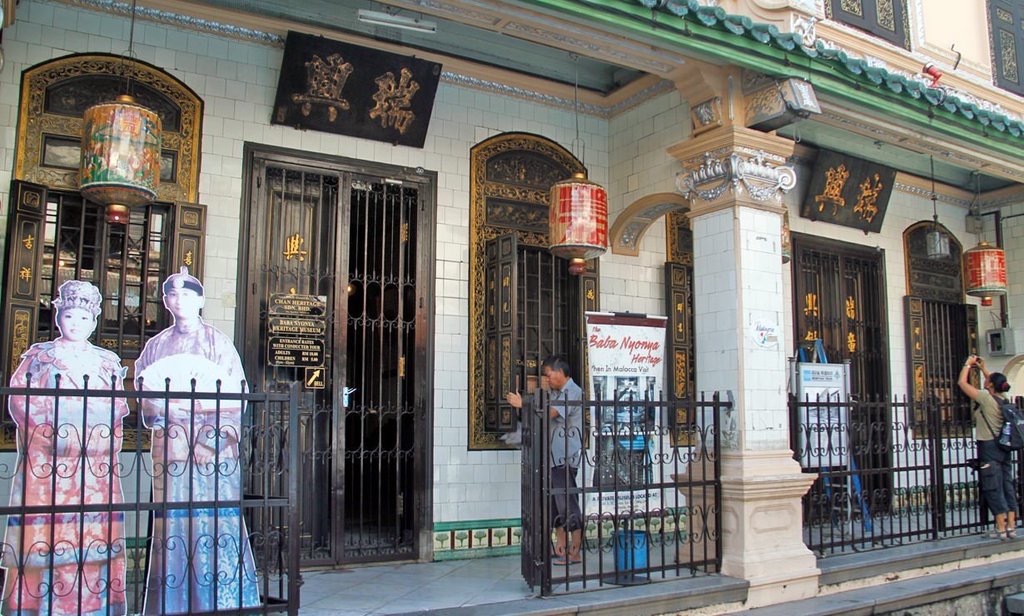By Fatimah Fawziyah
GOMBAK, 10 April 2016: A group of students from Communication Department visited Baba and Nyonya Heritage Museum in Malacca for the purpose of fulfilling a group assignment that has been assigned by Dr. Tengku Siti Aisha, the Intercultural Communication lecturer. The main objective of choosing this cultural museum was to comprehend the culture of Baba and Nyonya in relations to other culture.
During the trip, they got the chance to meet Lee Yuen Thien, 29, one of the fifth generations of Baba and Nyonya, who is also the manager of the museum. A very passionate person in sustaining the culture, he stated that he did not want the culture to be eroded as time passed by.
œPeranakan Chinese is the descendants of Chinese immigrants who came to the Malay archipelagos which now known as Peninsular Malaysia and Singapore. Members of this community in Malaysia address themselves as ‘Baba Nyonya’ where ‘Nyonya’ is the term for the women while ‘Baba’ for the men, said Lee Yuen Thien.
œBaba and Nyonya culture has its own uniqueness. For instance, a lot of intermarriage took place during the 18th century. Consequently, assimilation among the different cultures happened in terms of cuisine, clothing and tradition. Although they went through the assimilation process, they still choose to maintain their ancestor’s culture, which is from China, he added.
He explained that people always get confused with the myth of Hang Li Po Princess as they claimed that she had a relation with the origin of Baba and Nyonya. In fact, Baba and Nyonya originated from the Chinese immigrants who work in Tanah Melayu during the colonial days of British.
The Baba and Nyonya Heritage Museum is located in Malacca, a World UNESCO site. The house is a combination of three terrace lots that were acquired by the Chan family in 1861. Four generations lived in the house before it was opened as a museum in March 1985.
The group members of the project shared their experience and gave their opinion regarding the trip. They said that this subject gave them a chance to know deeply about the differences of other cultures.
œWhat we have learned from the interview session is that we have to respect cultural differences, quoting words from Intercultural Communication book, ‘all people have the right to be equal and the equal right to be different.’ I totally agree with this statement because I believe each person has his or her own uniqueness, said Lailatul Fitriyah Matsaini, 22, one of the group members.***
